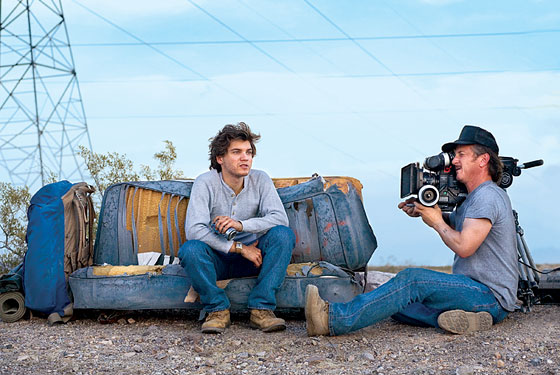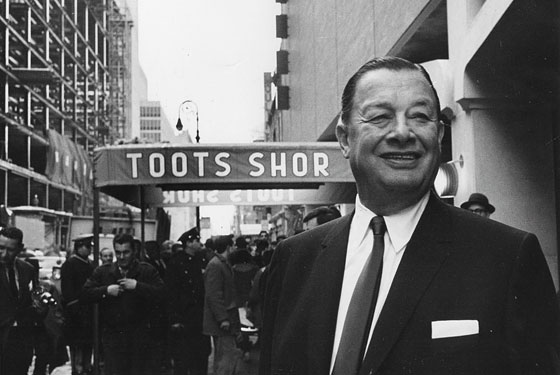
It’s no wonder that the fate of Chris McCandless ate into the minds of writer Jon Krakauer and filmmaker Sean Penn. The subject of the book and now the film Into the Wild was an upper-middle-class college grad who took off without telling his family, gave away his money, adopted the gung ho pseudonym “Alex Supertramp,” wandered the South- and Northwest, and was found dead—his body emaciated and decomposed—in a sleeping bag in an abandoned bus in a clearing at the edge of Alaska’s Denali National Park. Many of us harbor fantasies of escape from civilization, of shedding layers of flab, literal and metaphorical, of testing our wits, resourcefulness, and stamina—and Krakauer openly projects himself onto his protagonist. Like McCandless, he had a controlling father, and he devotes two chapters to his own obsessive and potentially fatal ascent, as a reckless youth, of an Alaskan peak. He counters the charge that McCandless was suicidal, idiotic, or plain nuts, viewing the young man as the latest in a noble, inspiring line of Americans who set forth alone into the wilderness to come to terms with what it means to be human. He opens every chapter with excerpts from the likes of Thoreau, Jack London, and Wallace Stegner, some from books in McCandless’s backpack beside his moldering corpse.
So what drew Penn—avid drinker, chain-smoker, ex-husband of Madonna, a guy you’d never think of as a mountain man—to the book? Well, he’s known for disdaining authority (try telling him not to smoke in an enclosed space), and he once lived out of a trailer in Hollywood. In any case, he brooded on McCandless’s story for a decade, and he brings to his adaptation a passionate yearning—a palpable envy of McCandless’s life and, in a perverse way, death. His Into the Wild is all over the place and ultimately, I think, wrongheaded in its attack. But Penn gives it the good old college try—or perhaps I should say, the good old society-dropout try.
For better or worse, Penn sees this saga as kinetic; he attempts to evoke McCandless’s restless odyssey by leaping around in time and space. That means fast montage, lyrical slow motion, fleeting encounters, narration by several different people, lines from the protagonist’s letters scrawled across the screen, and magnificent scenery held just long enough to register. Pearl Jam’s Eddie Vedder supplies irony-free paeans to leaving big bad society behind. After a quote from Lord Byron and a prelude in which Chris’s mother (Marcia Gay Harden) wakes from a dream in which she hears her estranged son cry for help, Penn cuts to Chris (Emile Hirsch) as he embarks—ill equipped—in the direction of Alaska’s Mount Denali (McKinley, if you insist). Intercut with Chris’s final weeks are shots of his college graduation, after which he tells his mother, father (William Hurt), and sister (Jena Malone) that he plans to put his $24,000 savings toward law school—then mails a check for the same amount to OXFAM; his good times with a pair of hippie nomads (Catherine Keener and Brian Dierker); and his stint as a South Dakota grain harvester for a raucous (somewhat shady) entrepreneur (Vince Vaughn). He paddles a canoe through restricted rapids on the Colorado River. Everyone he meets hears his breathless plans to take on Alaska, the Last Frontier.
For a great actor, Penn has surprisingly little grasp of dialogue. The scenes with Vaughn are speed-freaky and fragmented, the encounters with the earth-mother Keener too clipped to stir much feeling—until near the end, when she gets a roomy monologue about her own estranged son. None of the scenes are bad, exactly, but they undermine the film’s present tense—and being “in the moment” is what people who flee their comfortable, media-saturated surroundings generally aim to achieve. With all the narration and fits of slow motion (graduation caps in the air, bejeweled river water splashing around McCandless’s ecstatic face), the movie seems like the work of a nervous chain-smoker. It lacks concentration—and with it, the potential for rapture.
The actor who plays McCandless, Emile Hirsch, has a wide-open face (instantly readable even under a full black beard) and seems lofted by optimism. If McCandless was like this, it’s no wonder people took to him. But the portrait doesn’t have much shading; it’s romanticized. McCandless has been described as gregarious and sociable but also angry and aloof, with a Denali-sized chip on his shoulder. We hear about his struggles with his dad, via narration by his sister, but never see them. (Hurt does his best in isolated shots to convey Walt McCandless’s impatience and humorlessness—somewhere on the cutting-room floor might be a sustained performance.)
After all the nits are picked, Into the Wild has a crazy integrity—Penn believes. The actor in him understands what McCandless in his journal calls “the climactic battle to kill the false being within.” Kristen Stewart plays a leggy 16-year-old in a giant nomadic flea market with a whopping crush on the handsome visitor: Her longing for him—and the liberation he represents—is incredibly vivid. Hal Holbrook appears in an extended flashback as an old man who lost his wife and son to a drunk driver and withdrew into himself. His scenes aren’t especially well staged, but his craggy simplicity inspires Penn to slow down, and an irony emerges: People who spent time with the peripatetic McCandless wanted to adopt him. The final Alaska sequences, in which Chris makes a mess of butchering a moose and loses the meat to maggots, have shock value beyond the yucky imagery: It’s the first suggestion that those who love nature most know best how to fear it. The tragedy of McCandless is that he learned that a few weeks too late.

Alaska also kills a lot of unwitting people in writer-director Larry Fessenden’s unnerving global-warming ghost picture The Last Winter. Like his Wendigo, the film has a lot of mumbo jumbo about ancient spirits revived and angered by human disrespect—the old Indian-graveyard paradigm, as clunky as ever. But the context is overpoweringly eerie. The setting is the satellite office of an oil company—set in the middle of frigid, blinding white blankness. A company geologist (the intensely likable, underused James LeGros) has grave concerns about the melting permafrost, but the boss (Ron Perlman in one of his entertaining blowhard turns) puts profit (and authority) before all—even after members of the team begin dropping dead from some nameless terror and getting their eyes picked out by ravens. There’s something under that permafrost, encased for millions of years, now awake and pissed-off. The Last Winter was shot in northern Iceland and Alaska, and despite some too-explicit imagery in the final moments, the claustrophobia-to-psychosis continuum is harrowingly fluid.
For a heavy dose of civilization—the best kind—I give you Kristi Jacobsen’s marvelous documentary Toots. It’s the story, of course, of Toots Shor, saloonkeeper extraordinaire, confidant of gangsters and sports legends and competitive drinking buddy of Jackie Gleason (maybe showbiz’s most colorful and insatiable alcoholic). Jacobsen is Shor’s granddaughter and comes to revive not just Toots but what he stood for: the joy of playing host to celebrities and commoners alike, to creating an atmosphere of “palship.” The movie has a joyous swing that would have gladdened its subject’s heart: Even the old talking heads (Walter Cronkite, Yogi Berra, Mike Wallace, Frank Gifford, many more) seem to shed decades as they reminisce about “your grandfather’s” place and the boozy glamour of the forties, fifties, and early sixties—until Toots’s slow, heartbreaking slide into bankruptcy and irrelevance. Toots leaves you longing for a more public culture, for places where the palship isn’t just the upshot of intoxication. It’s a cinematic happy hour.

BACKSTORY
Chris McCandless’s parents initially rejected the requests of Sean Penn and others to obtain the rights to their son’s story. Billie had a dream about her son that she took as a sign the movie should not be made. “I was willing to take no for an answer” was Penn’s Zenlike response, which paid off—ten years after Jon Krakauer’s book, they reconsidered and went straight to the director, who shelved his initial casting plan (Leonardo DiCaprio as Chris). “Ultimately, there is something very selfless about their decision to do it,” Penn told the Los Angeles Times. “It’s one thing to lose a son. It’s another thing to hold yourself accountable to being a part of that.”
Into the Wild
Directed by Sean Penn. Paramount Vantage. R.
The Last Winter
Directed by Larry Fessenden. IFC first take. Unrated.
Toots
Directed by Kristi Jacobson. Menemsha Films. Unrated.
E-mail: filmcritic@newyorkmag.com.
